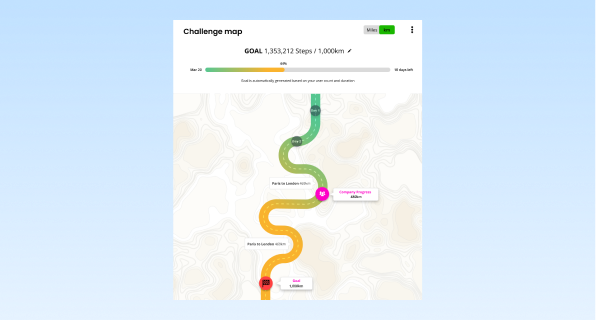To know the budget for your team building, first, you need to understand the purpose of building a team budget. The purpose of a team-building budget is to control the money spent on team events.
It is a plan for spending money to help groups build connections. When putting things together, you need to consider how much to spend per person, how to get the most benefit out of your money, and also how to categorize your expenses.
In the article below, we will be analyzing the steps you need to follow to create a befitting team-building budget. Make sure to stick around to get the full offer.
The Objective Of A Team Building Budget
Team building is one of the ways to prove the success of a company as the collaboration of the employees helps boost morale and aids problem-solving which all contributes to higher productivity and a stronger bottom line.
- A team-building budget aims to come up with a detailed plan showcasing the funds that will be allocated for activities that will promote team communication and collaboration.
- It also aims to control expenses and maximize the benefits gained from team building
Importance Of Planning A Budget
Let’s look at why planning a budget is important.
- For Financial Accountability: For a company to function effectively, there must be accountability. This section helps to ensure that money is spent responsibly, for a good course, and in order with the goals of the company.
- For Long-term Planning: This is also an important addition to a company’s growth. Planning a budget helps ensure that both planned and unplanned activities are budgeted for, that way, the company won’t be heavily affected by impromptu events.
- To Maximize ROI: A budget plan also helps choose activities that give the greatest value to employees and get the desired outcome.
Examples Of Team Building Activities
- Step challenge
- Score prediction game
- Photo challenge
- Company quiz
- Team Lunch
- Volunteer
- Team Gifts
- Coffee break
Steps To Follow To Craft A Budget
- Know Your End Goal: Knowing what you seek to achieve at the end of it all is the very first step. Do you want to improve communication or is it to solve a problem? First, you must identify what you wish to achieve.
- Create a Wish-list: Next, you might want to write out a list of activities you’d like to see your team play. Also, do this without worrying about the cost yet. Just pick out fun and inspiring activities you’d wish to recreate.
- Determine the Source of Revenue: This is also an important step. You need to know where the funds will flow in from. Note that this applies to not all but most, many companies usually provide each team with a set amount at the start of the year. This can be a means to deriving revenue.
- Understand Your Model: With this, you need to understand whether you want to start with a fixed total or you want to come up with it but by bit as it goes on.
- Check for the Limit: You must always make sure to check if there is a limit before planning it all out. Consultation with the management to check the available funds and spending guidelines is also advisable.
- Compilation of Cost Research: Detailed accountability must be carried out. Account for food, venue, transportation, rentals, equipment, or any other hidden costs. Also, make sure to check for the activity that goes well with the current season as it may influence the cost.
- Advanced Booking: Make sure to plan as it will help avoid issues like disappointment and delay. Planning also helps you attain the full benefit as it helps optimize costs and secure the chosen dates.
Tips For Attaining A Good Team-Building Budget
- Advanced Planning: This is usually underrated but yet an essential part of a budget. Planning helps secure the best rates, avoid rush fees, and also gives one the time to adjust any plans that don’t sit well.
- Be Specific: When detailing a plan, be as specific as possible. This helps to avoid any unexpected cost or misinterpretation.
- Be Flexible: Have different options, which can be high, low, or in between, to adapt in case the budget changes. A budget change does not mean it wasn’t planned out well, things can occur along the way and it’s always good to be flexible.
- Top-rated Accuracy: Make sure to keep track of every expense, event, and communication and make sure every cash is accounted for.
- Itemize Every Activity: Don’t just go with the mindset that you’d handle things as they come. Make sure everything is broken down into stages then mark out areas in which you can save.
Insights
It has been observed by SHRM that companies spend up to $1,000 per employee annually on development and training. Another report was given by the training industry which suggests a slight increase of $1,200 per employee.
However, as earlier stated, the team building budget can vary based on the company’s size, industry, and location.
A sample team building budget illustration:

How To Create A Budget In Excel
Being a question of interest, creating a budget in Excel will also be studied. Let’s go through the necessary steps that should be taken to create a budget using Excel.
First, you need to download the Excel budget template.
Secondly, enter your income into your budget template: To do this, you need to go to the income sheet, you’ll see a table containing several categories like ‘salary’, ‘freelance income’, and so on. Then you have to input the amount for every box and include any new revenue source.
Thirdly, to enter your spending in your Excel template, move to the category. There you’d find categories such as ‘rent’, ‘food’, or ‘utilities’. Following that step, add the right amount for each section and add new expenses as necessary.
Lastly, add extra columns to your template. These extra boxes are there for comparison. Name it and enter your budget amount for each section.
Now, you can calculate the difference between the actual cost and your sample budget. Using this template, you will know how much you have spent and not spent in each category.
Conclusion
By following these few steps stated above, you will be able to create a well-detailed and planned team-building budget that unlocks the full potential.
It can also help create a team that is eager to work thereby creating an atmosphere that is more productive and workers who are interested in the company’s growth.








